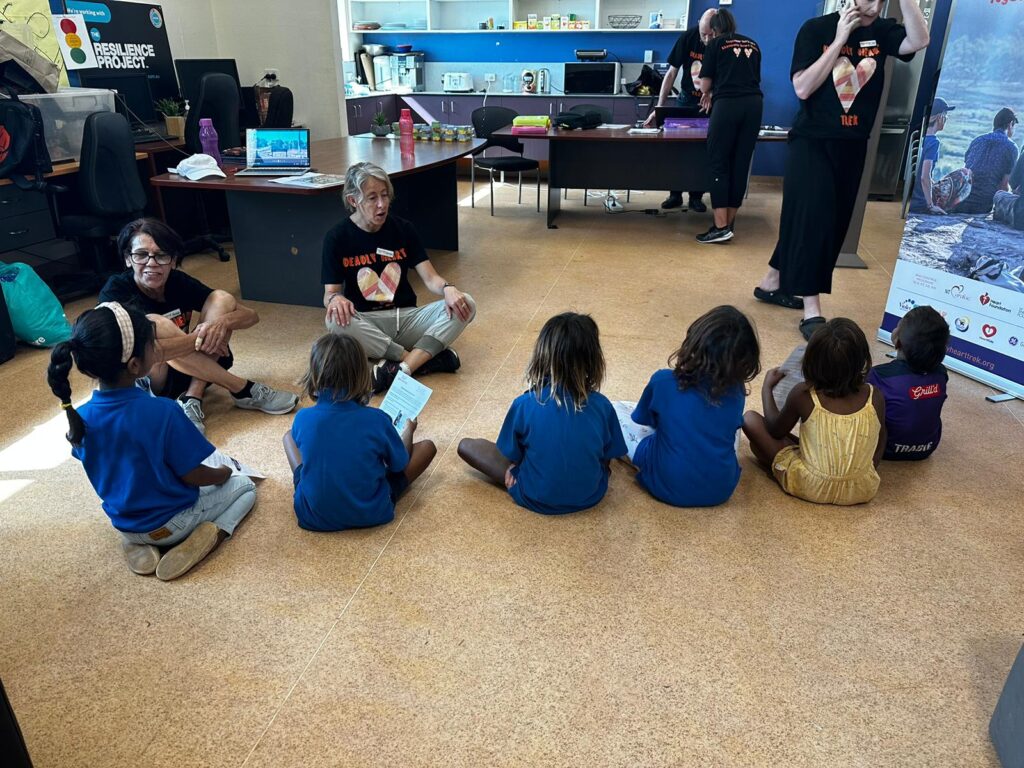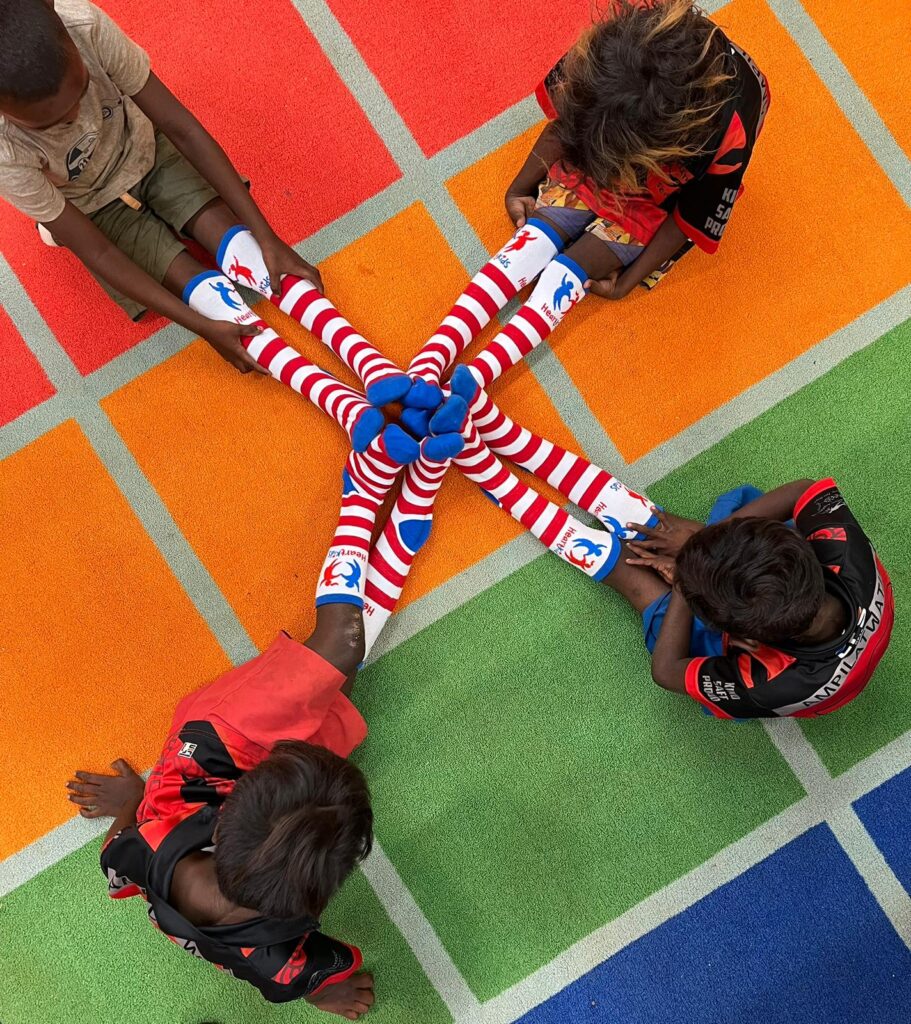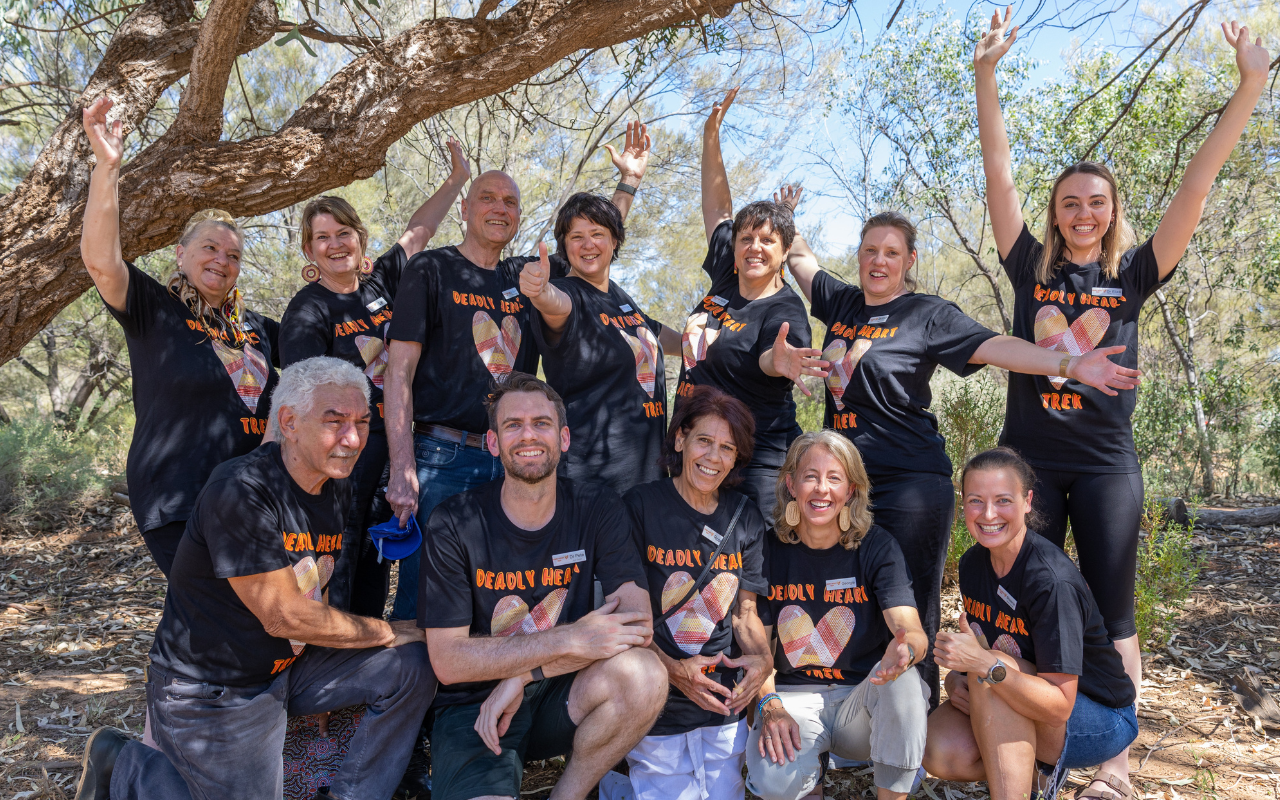Indigenous Australians in remote areas bear a disproportionate burden of poor heart health, prompting innovative AI solutions and targeted campaigns.
In a world-first, artificial intelligence (AI)-guided heart ultrasounds are being trialled in remote Australia to help improve the health outcomes of people living in outback communities.
The trial is being rolled out by the Baker Heart and Diabetes Institute and aims to investigate the effectiveness of AI-based echocardiography to triage and manage patients with known or suspected heart disease in rural and remote areas.
The study is being conducted in partnership with Aboriginal community partners.
Cardiologist and chief investigator, Professor Tom Marwick, said with rural and remote Australia carrying a disproportionate burden of heart disease, especially in the case of rheumatic heart disease (RHD).
“It is important that we look for solutions to ensure equitable access to important tests like an echocardiogram to avoid late diagnoses and poorer outcomes for people in rural and remote Australia,” Professor Marwick said.
The new equipment and software will assist health professionals to perform the ultrasound and allow for automated remote image processing. This allows the ultrasound to be performed by an Aboriginal health practitioner from the community, without the need for a sonographer to be on site.
“There are no sonographers in these communities,” Professor Marwick said.
“The patients are comfortable with someone in their own community being involved, and we hope more likely to agree to the scan.”
The trial is supported by $1 million from the Australian Government’s Medical Research Future Fund and aims to investigate the effectiveness of AI-based echocardiography to triage and manage patients with known or suspected heart disease in rural and remote areas.
Preventing heart disease with the Deadly Heart Trek
Although AI heart screening is still in its infancy, a group of multidisciplinary doctors, paediatric cardiologists, health workers, Aboriginal leaders and local communities have taken a more hands-on approach to heart health with the “Deadly Heart Trek” to promote early detection of RHD in remote communities.

To date, there has been a Trek to nine communities in the Northern Territory and a Trek to five communities in Queensland. The team recently gathered in Alice Springs to launch the third major leg of the Trek through central Australia.
By engaging with local schools and community centres, the Trek aims to undertake heart and skin checks for children for early detection of acute rheumatic fever and RHD, while also educating the community and local health workers.
Georgina Byron AM, CEO of the Snow Foundation and chair of the Trek Steering Committee, told InSight+ that access to trained experts and expensive equipment are barriers to early diagnosis and treatment in remote communities.
“The Trek works to help alleviate this by providing access to trained medical specialists at schools and youth centres, and ensuring Indigenous cultural protocols are front and centre in community engagement with the Trek team, prior to and during the visits with the equipment and expertise needed,” Ms Byron said.
“The members of the Trek look to empower communities so they learn about their own RHD story and how they can work to eliminate it.”

Ms Byron said the latest Trek has covered large parts of remote Australia.
“The first leg of the new Deadly Heart Trek visited communities around the Big River and Barkley region, the second in the Torres Strait and Far North West in Queensland,” she said.
“The third leg, almost finished, travelling through Central Australia and APY Lands.”
Ms Byron said the Trek works to help alleviate issues with health care access and late diagnosis by providing local communities with access to trained medical specialists at local schools and youth centres.
She said this ensured Indigenous cultural protocols are front and centre in community engagement with the Trek team. Senior Noongar woman and Trek member Vicki Wade welcomed the program, saying it was vital eliminating RHD.
“RHD is a serious health justice issue causing devastation and disruption across Aboriginal and Torres Strait Islander communities,” Ms Wade said.
“Yet there is Aboriginal leadership, community demand, collective goodwill and an evidence base in the ‘RHD Endgame Strategy’ that show us that we can eliminate this disease if we take action now; action like this Trek.”
Subscribe to the free InSight+ weekly newsletter here. It is available to all readers, not just registered medical practitioners.

 more_vert
more_vert
If these dedicated remote healthcare workers are doing these Heart Trek to most aboriginal communities, might as well include the disabling Treks of eyes(Trachoma) and ears(Otitis) infections both young and old of first nation people- still very common infectious conditions in these remote communities that can easily be managed and treated early.
A major step forward. More please.